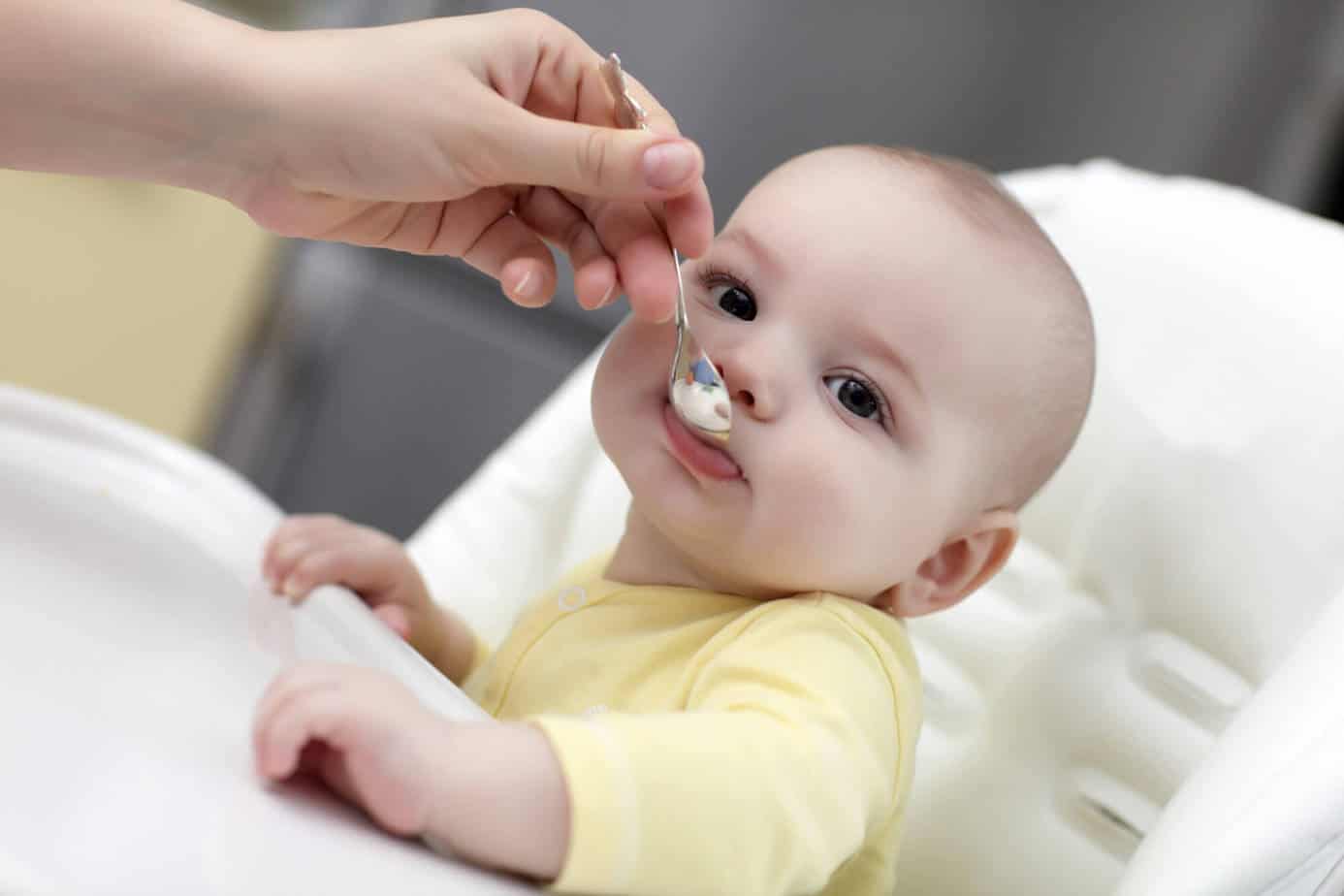6 Month Baby Food – First Tastes

Starting your baby on solid food is an important stage in their development, but there is more to it than just making sure they’re getting all the nutrients they need – it’s also about teaching them to accept and enjoy new foods and textures!
What to Expect During Weaning Stage 1
At around 6 months of age you’ll start noticing signs that your baby is ready to move on to solid foods. Sitting up unsupported and beginning to bite things instead of sucking are just two signs they may be ready for their world to open up to a whole set of new food experiences!
Getting More Food In Than Out!
Be patient and don’t expect your baby to love all the new tastes the first time they try them – just offer them again another time and remember it may take a few goes before they finally accept them!
Ideal Foods for 6 Months Old
Babies need to be encouraged to try lots of different types of foods to help them get all the nutrients they need and get used to tasting different flavours – there is no need to add extra sugar (including honey) or salt. Try and offer your baby a range of foods from the following five main food groups, that purée easily or have a puréed texture:
| Food Group | Serves Per Day | 1 standard serve equals… |
|---|---|---|
| Vegetables, legumes and beans | 1 ½ | 20g total of: – Pumpkin, sweet potato and broccoli – Zucchini, yellow squash and potato – Green beans and sweet potato – Cauliflower and carrot – Avocado and pumpkin – Lentils |
| Fruit | ½ | 20g of: – Melon and banana – Papaya and banana – Apple and pear – Pear and peach – Avocado and apple |
| Grain (cereal) foods | 1 ½ | 40g of: – Cooked quick oats – Couscous |
| Cereal for infants | 1 | 20g of: – Iron-fortified cereal |
| Lean meats and poultry | 1 | 30g of: – Soft cooked puréed chicken, fish, egg or tofu |
| Milk | 1 | 600ml of breastmilk or formula |
| Yoghurt and cheese | ½ | – 20ml baby yoghurt – 10g cheese – Custard |
You can find more information on the equipment you may need when you first start feeding solids in the article: Equipment for Weaning.
Foods and Drinks to Avoid
While offering your baby a range of food is recommended there are some foods and drinks that should be avoided – these include:
- Cow’s milk – don’t use this as the main drink until your baby is 1 year old.
- Foods that contain unpasteurised milk.
- Honey – should not be feed to a baby under 12 months old as it may contain harmful bacteria.
- Fruit juices – these are not usually recommended for babies under 12 months.
- Tea, herbal teas, coffee, and cola drinks.
- Hard foods that could be a choking risk such as chips, popcorn, nuts and lollies
6 Month Old Feeding Schedule
Foods can be introduced in any order (as long as ones rich in iron are included) and at a rate that suits your baby – you can offer more than one food at a time and even mix them together.
- The consistency of the food offered should be appropriate for your baby’s developmental stage. Start with puréed, smooth, soft foods that don’t require chewing. After your baby is happily eating a range of smooth foods they’ll soon be progressing to thicker and lumpier textures, and by around 8 months they’ll be ready for finger foods.
Weaning, Breastfeeding, Milk & Formula
Beginning solid foods at around 6 months is important, as it’s a time when your baby is beginning to need more nutrients and energy than their breast milk or infant formula alone can provide. It’s also the time when babies adjust more quickly to new textures and foods, – but breast milk or infant formula still needs to be continued when solid foods are introduced as they remain an important source of nutrients during your baby’s first year. You can find more information on weaning and what other signs to look for in the articles: What is Weaning? and When to Start Weaning?
Once your baby is happily eating a range of smooth foods it is important to get ready to move on to the next stage – thicker textures, lumps and chewing!
For more helpful information and tips on the next stages of feeding see the articles: Stage 2: 7-9 Months, Stage 3: 10- 12 Months and Stage 4: 10-12 months
Stage 1 FAQs
AF05520


